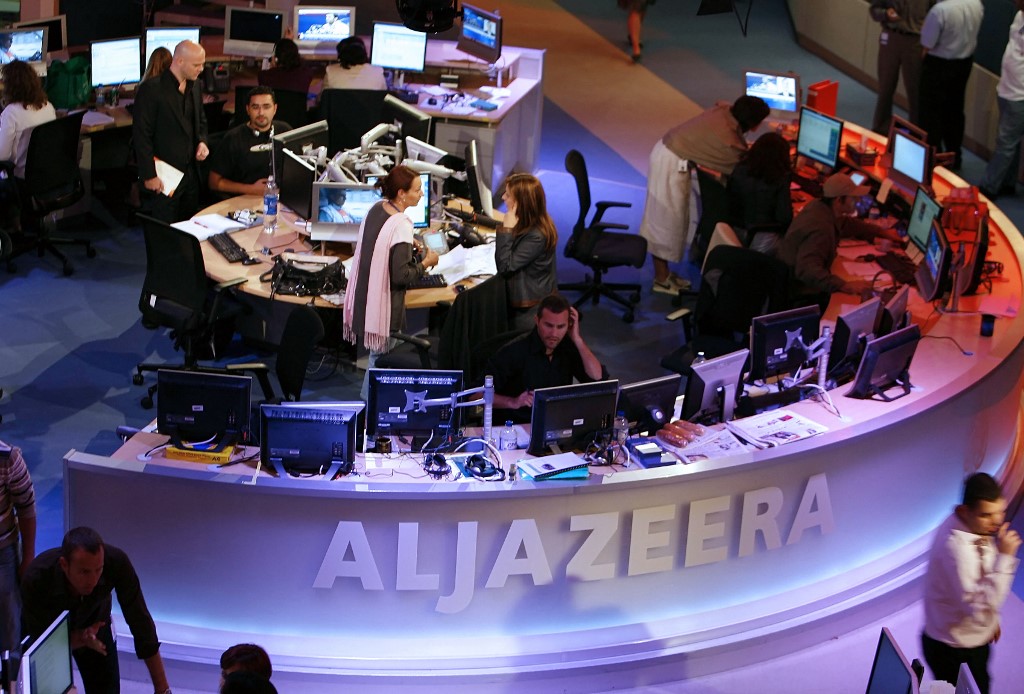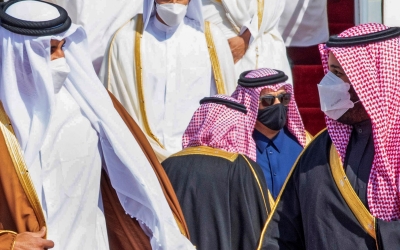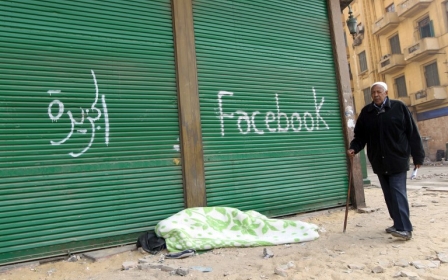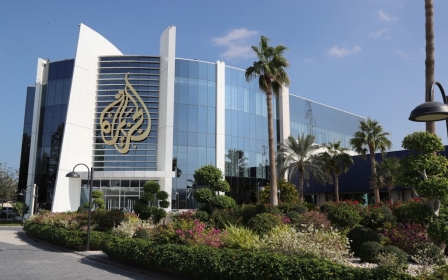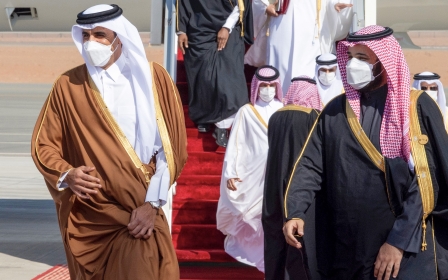Rightly or wrongly, Al Jazeera's newest venture may be necessary
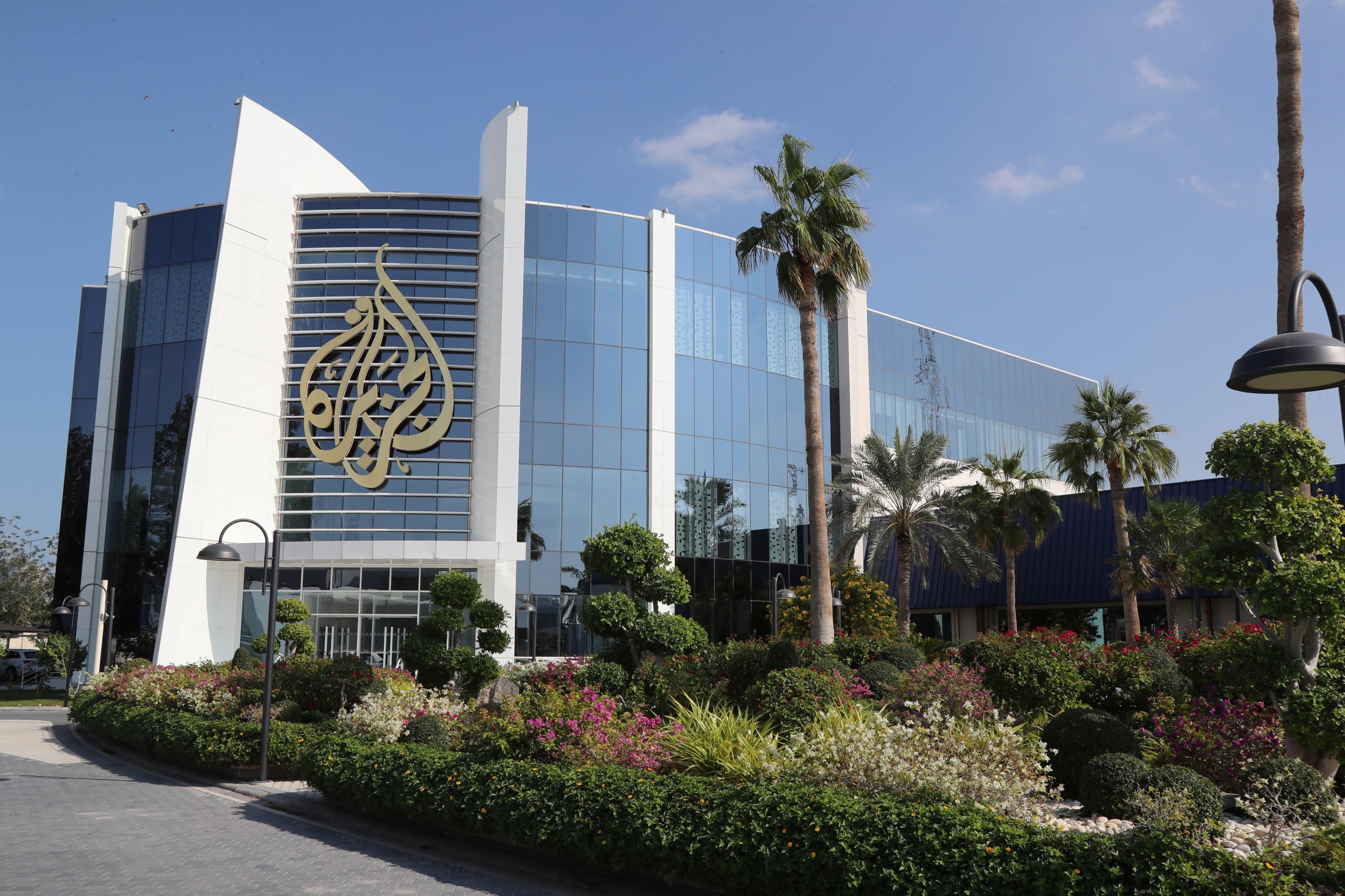
When news first emerged on 23 February that Al Jazeera was establishing a platform called “Rightly” to target US conservative audiences, it landed like a bombshell. Journalists and staffers of the Doha-based satellite network were quick to express their disagreement via social media.
Ahmed Shihab-Eldin, a senior reporter for AJ+, expressed his misgivings over the move via Twitter: “What happened to giving voice to the voiceless? Or does Al Jazeera feel … these conservatives are somehow voiceless? What an exploitative misguided move. This is not innovation. This is not progressive. This is politics and exploitation.”
Similarly, Dena Takruri, a senior presenter and producer with AJ+, tweeted: “I’ve worked at Al Jazeera for over 10 years bc of the values-based journalism we uphold: to give voice to the voiceless, speak truth to power & prioritize facts over ideology. THAT is the Al Jazeera I know. Many of my colleagues have risked their safety & lives for this mission.”
Internal criticism
Objections soon took the shape of an internal open letter to Al Jazeera’s management. More than 100 staff voiced their opposition, saying the venture went against the network’s mission and would “irreparably tarnish the network’s brand and work”.
New MEE newsletter: Jerusalem Dispatch
Sign up to get the latest insights and analysis on Israel-Palestine, alongside Turkey Unpacked and other MEE newsletters
Such a backlash is to be expected for various reasons, not least because many Al Jazeera staffers only learned about the development via the media. But the lack of internal communication is only the tip of the iceberg: The roots of their apprehension are ultimately located in the network’s worldview, and especially within Al Jazeera English and AJ+.
Right-wing politics is usually diametrically opposed to what Al Jazeera has stood for, whether in regional or international politics
Al Jazeera became renowned in the Middle East with the creation of its Arabic-language channel in 1996, which earned a reputation for standing up against oppressive regimes. Its reporting on the Palestinian Second Intifada and US-led wars in Iraq and Afghanistan constituted a “decolonisation of the airwaves” and played a vital role in debunking military propaganda.
Such critical coverage provoked the international establishment’s ire to the extent that former US President George W Bush speculated about bombing the network’s headquarters in Qatar in 2004, according to a report in the Daily Mirror. The report cited two anonymous officials, one of whom said Bush made the remark in jest, while the other maintained he was “deadly serious”. The previous year US forces had killed an Al Jazeera journalist when its bureau was bombed during the invasion of Iraq.
The network’s journalistic success expanded further onto the world stage thanks to the launch of Al Jazeera English in 2006. The channel had the necessary ethos and resources to produce stories and perspectives that other international media did not always cover, if at all.
Many journalists and producers espoused liberal views, seeing the job as an opportunity to do journalistic work that was not always possible in other countries because of the extensive commercialisation of the media sector, budget cuts and other impediments, including the dominance of right-wing media ownership.
Qatar's soft power
So what could explain this move to establish Rightly and to venture into the uncharted waters of right-wing politics? Several factors are at play.
Firstly, Qatar’s inception of the Al Jazeera network is closely tied to its soft power strategy. According to political scientist Joseph Nye, soft power represents “the ability to affect others to obtain preferred outcomes by the co-optive means of framing the agenda, persuasion, and positive attraction”. In this context, Doha has aspired to play a broader international role over the past 25 years as both a mediator and an initiator of cooperation and collaboration, regionally and internationally.
Such a grand strategy and the creation of a mighty media empire go hand-in-hand. Therefore, venturing into new media territories - whether geographic, demographic (eg AJ+) or political (eg Rightly) - should come as no surprise.
Al Jazeera previously tried to venture into the US news market through its now-defunct Al Jazeera America (AJAM), although this was undertaken via the acquisition of the progressive-oriented television station Current TV. But following several strategic, managerial and operational blunders, and after the loss of about $2bn, AJAM was shut down in 2016 after just three years of operation.
Secondly, building further soft power capabilities has become even more pressing for Qatar after the blockade imposed by Saudi Arabia, the UAE, Egypt and Bahrain from June 2017 to this past January. Doha’s reliance on soft power and public diplomacy played a big role in its emerging victorious from the vicious political and economic warfare imposed on the country.
The move against Qatar, backed by chief US ideologue Steve Bannon, held some lasting lessons for Doha, namely that the strategy of benign neglect vis-a-vis the conservative camp was counterproductive. Some form of positive engagement with the right-wing constituency had to be implemented.
Golden opportunity
Last but not least, the upheaval now being witnessed within the conservative camp represents a golden opportunity. Former US President Donald Trump’s election defeat left conservatives in the country split, and there has been significant dissension between the Trump camp and Fox News.
Such a period of upheaval represents a window of opportunity for Al Jazeera to try its luck and convey its old motto of being “a voice for the voiceless”. Many non-Trumpist centre-right viewers feel disenfranchised and underrepresented. With the right editorial and journalistic approach, combined with more astute business acumen, this venture could well pay off.
Of course, scepticism will still surround Al Jazeera’s newest project. Right-wing politics is usually diametrically opposed to what Al Jazeera has stood for, whether in regional or international politics. But then again, without engagement and more cogent discussions with other perspectives and world views, how can the binaries plaguing our public sphere ever be addressed?
The views expressed in this article belong to the author and do not necessarily reflect the editorial policy of Middle East Eye.
Middle East Eye delivers independent and unrivalled coverage and analysis of the Middle East, North Africa and beyond. To learn more about republishing this content and the associated fees, please fill out this form. More about MEE can be found here.



